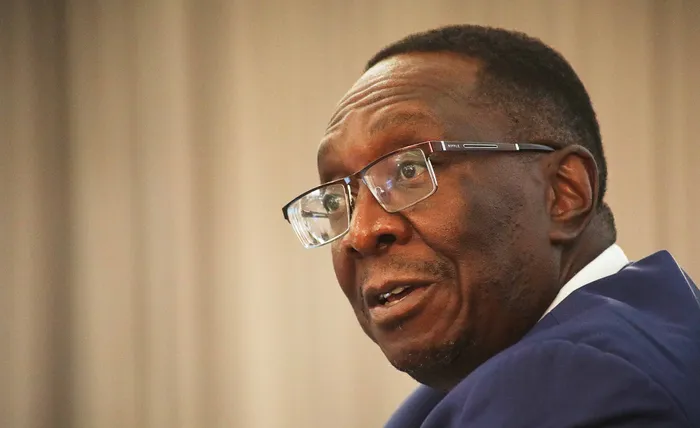Judicial Service Commission to interview candidates for Deputy Chief Justice position

Gauteng Judge President Dunstan Mlambo is one of three candidates who will be interviewed on Wednesday for the position of Deputy Chief Justice.
Image: Picture: Timothy Bernard/African News Agency
The process to choose the country’s next deputy chief justice starts on Wednesday when the Judicial Service Commission (JSC) and leaders of political parties and others within the legal fraternity will interview three possible candidates.
But President Cyril Ramaphosa, as head of the National Executive, after consulting the JSC and the leaders of parties represented in the National Assembly, will have the final say over who will stand by the side of Chief Justice Mandisa Maya.
The position of deputy chief justice has been vacant since September 1, last year, when the then-Deputy Chief Justice Maya rose to the position of chief justice. The three candidates who will be interviewed are Gauteng Judge President Dunstan Mlambo, Free State Judge President Cagney Musi, and Northern Cape Judge President Pule Tlaletsi. A fourth nominee, Supreme Court of Appeal (SCA) Justice Mahube Molemela, withdrew.
Online group Judges Matter, which advocates for transparency and accountability within the judiciary, looked at the chances of each of the judges to get the nod and said Judge Mlambo, 66, has impeccable credentials as a judicial leader. For the last 15 years, he has served as judge president of two of the busiest courts in the country – the Labour Court and then the Gauteng High Court. He is currently the most senior judge president in South Africa in terms of years of service.
According to Judges Matter, he is regarded by the legal profession as an innovative and savvy leader, and he spearheaded the rollout of the Court Online system in the Gauteng High Court in 2020, at the height of the Covid-19 pandemic.
As chair of the Judiciary’s IT committee, he has overseen the further rollout of Court Online to seven of the nine provinces. Before moving into judicial leadership, he was a judge of the Supreme Court of Appeal and has served a brief stint as an acting justice of the Constitutional Court, and the Labour Appeal Court, which signals experience in working in teams of appellate judges.
In looking at the chances of Judge Musi, 63, Judges Matter said he has the distinct advantage of having spent half his life as a judicial officer. He started as a district magistrate and worked his way up to be a regional magistrate, high court judge, deputy judge president and now judge president.
“This offers him a unique ‘bottom-up’ perspective on the judiciary. Should he be appointed as DCJ, this perspective would be an asset in helping implement CJ Maya’s vision of a single, unified judiciary (with magistrates and judges under one roof),” Judges Matter said. Judge Musi, the youngest of the three candidates, would serve for nearly the duration of CJ Maya’s tenure.
In looking at Judge Tlaletsi’s chances, Judges Matter said the 65-year-old has 22 years of judicial experience under his belt, with 13 as deputy judge president of the Labour Court and then the Northern Cape High Court. Judge Tlaletsi is actively involved in the leadership roles in the judiciary. “This experience will be particularly crucial in supporting CJ Maya’s vision of a single, unified judiciary that governs its own affairs,” Judges Matter said.
Related Topics: